Teen athletes need a strong dietary foundation and lots of energy. Anyone who knows a young athlete knows they can get hungry … and often! It is important that young athletes eat healthy well-balanced meals and remain hydrated in order to achieve optimal health and performance.
A young athlete needs to be fueled by eating proper types of foods – carbohydrates for fuel (whole grains, fruits and vegetables); calcium for maintaining muscle tissue and bone strength, and protection against stress fractures; and iron (protein: lean meats, poultry, fish, eggs, dairy, nuts, soy, peanut butter) to restore red blood cells and the body’s iron that is depleted from sweating, according to nutritional reports. Iron also helps red blood cells transport oxygen throughout the body, giving teens energy. Signs of weakness and quick fatigue usually mean a shortage of iron in the diet.
Nutrition plays a key role in athletic performance. Failure to provide the proper nutrition, fluids, vitamins and minerals that young athletes need will result in poor performance and an increased risk for injury and/or illness, according to nutritional reports. More than any other age group, teens need a lot of energy. Energy comes from calories, and on a daily basis teenage boys need about 2,500 to 3,000 calories, whereas teenage girls need about 2,200 calories. The good news is that most teens have no problem acquiring them. However, parents should note how the calories are being consumed. A bag of potato chips with a super-size soda will add calories quickly, but fatty snacks and sugary soda drinks contain very little nutrients. On the other hand, 3-5 cups of fruits and veggies a day will ensure that every young athlete is fueled and hydrated for optimal health and performance.
Make sure your young athletes are well-fed before training sessions. They should eat a well-balanced meal that contains 75-200 grams of carbohydrates, 2-4 hours before training or competition. Replacing carbohydrates that were used during exercise, within 2 hours afterward, is essential for a speedy recovery and preparing for the next athletic training period. The post-exercise meal should contain approximately 150 -200 grams of carbohydrates.
Keeping Young Athletes Hydrated
Young athletes often have an increased risk for dehydration and various heat illnesses. The higher energy expenditure of young athletes means that they produce more metabolic heat, and they may not sweat as efficiently as older athletes and thus not cool their bodies as effectively. Young athletes also may not pay attention to drinking enough fluids, and their body core temperature during dehydration tends to increase faster. For these reasons it is essential that young athletes be encouraged to drink frequently even when they are not thirsty.
Warning Signs of Dehydration
- Thirst
- Irritability
- Headache
- Weakness
- Dizziness
- Cramps
- Nausea
- Decreased performance
Guidelines for Optimal Hydration
The American College of Sports Medicine (ACSM) provides the following guidelines to maintain optimal hydration:
Before Exercise: 16 - 20 full ounces within 2 hours prior to exercise.
During Exercise: 4 - 6 full ounces.
Post Exercise: replace 24 full ounces for every one pound of body weight lost during exercise.
NOTE: There are many beverage choices, but the best source of hydration is still good old-fashioned water. The problem is getting your young athlete to drink that much. If you can couple your hydration and nutrition efforts, eating snacks like bagels, trail mix, dried fruit or pretzels, the combination will stimulate the athletes' thirst and encourage them to drink more. Alternatively, sports drinks like Gatorade are designed to stimulate thirst, so the athlete only feels he/she needs to drink more, instead of being properly re-hydrated.
MEAL PLAN
Here is a good example of a meal plan for a teen athlete, from ehow.com:
Breakfast: breakfast burrito (large whole-grain tortilla filled with 2 scrambled eggs, 1/3 cup of cheese and 1/4 cup salsa); a fruit smoothie; and green tea or water.
Snack: 2 sticks of string cheese; 20 whole-grain crackers; 1 8-ounce glass of water; 1 8-ounce glass of carrot juice.
Lunch: chicken salad (romaine lettuce, 1 tomato, 1 carrot, 1/2 cucumber, 1/4 avocado, 6 oz. sliced chicken breast); 20 corn chips or a whole-grain roll; 1 8-ounce glass of skim milk; 1 8-ounce glass of water.
Snack: 1/2 cup hummus; 1-2 cups assorted cut veggies; 1 8-ounce glass of sparkling water; 1 8-ounce glass of pomegranate or cranberry juice.
Dinner: stir fry (6 oz. meat of choice, 2 cups veggies of choice, 3 tbsp. low-sodium soy sauce, 2 tbsp. olive oil); 2 cups brown rice; 2 8-ounce glasses of sparkling water.
Snack or dessert: 1-1/2 cups sliced fruit; 3 tbsp. whipped cream; 12 almonds; 2 squares dark chocolate.
More links for nutritional guidelines and food suggestions for teen athletes:
http://www.parents.com/recipes/nutrition/kids/healthy-snacks-from-a-to-z/
http://www.bhg.com/recipes/healthy/eating/nutritional-guidelines-for-teens/
http://www.ayso104.org/parents/nutrition.html
Go for an active, athletic vacation in Costa Rica!
Spend your tropical vacation in Costa Rica improving your athletic skills learning to surf or picking up new techniques with Del Mar Surf Camp. The top Costa Rica surf school specializes in Costa Rica surf vacation packages, yoga-surf retreats and day surf lessons for adults, women-only and families. Del Mar Surfing Academy, its sister company, offers 7-night and 14-night surf and cultural/language immersion camps for teens.
With Del Mar Surf Camp, you will surf every day in warm water with locals who have surfed these waves their whole lives, plus learn to speak Spanish and enjoy area tours. Del Mar Surf Camp provides various packages for beginners/intermediate surfers, advanced surfers, women only, families and groups. Though there is a schedule, camp dates also are run on an “anytime you want” basis (discounts given for Saturday arrival).
Enjoy three top Costa Rica surf locations with Del Mar Surf Camp: Hermosa Beach on the Central Pacific Coast, Nosara Beach on the Guanacaste Pacific Coast, and Santa Teresa Beach on the Pacific’s southern Nicoya Peninsula. Del Mar Surf Camp offers Summer Specials packages, with great discounts, to celebrate their 10th anniversary in 2013. Domestic flights and transfers to all of Del Mar’s locations are included in all surf vacation packages.
By Shannon Farley

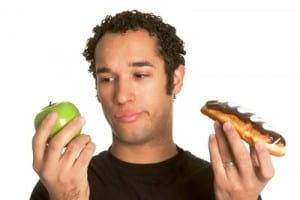
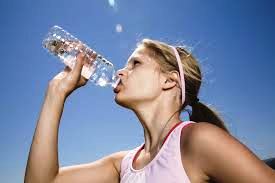
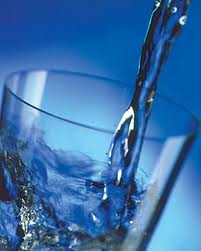

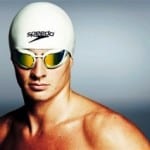
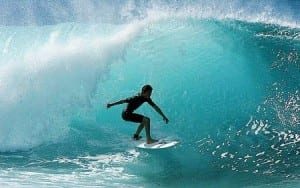
Comments